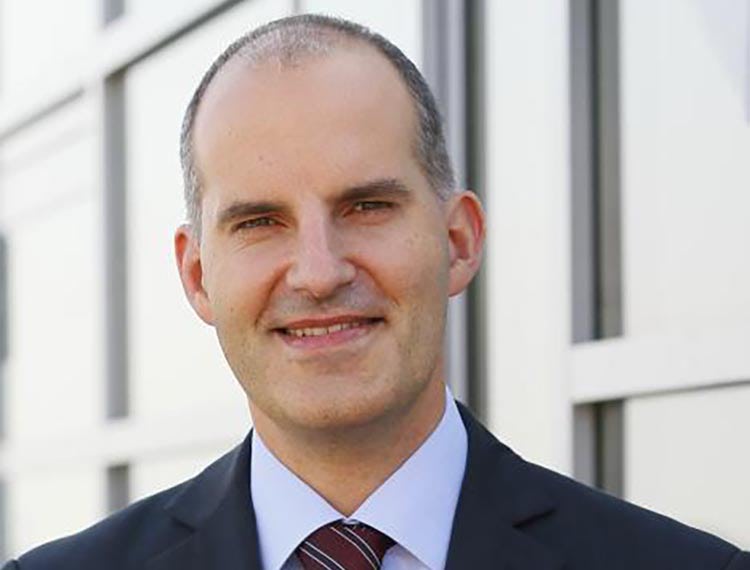Unleashing Europe’s entrepreneurial talent: International Day of Education

When launching the transformative Green Deal, Ursula von der Leyen, the new European Commission President, emphasised: ‘We will need to invest in innovation and research, redesign our economy and update our industrial policy’, adding: ‘Those who act first and fastest will also be the ones who grasp the opportunities from the ecological transition.’We will need to invest in innovation and research, redesign our economy and update our industrial policy’, adding: ‘Those who act first and fastest will also be the ones who grasp the opportunities from the ecological transition.’
This is ambitious. This is also an absolute necessity; at the European Institute of Innovation & Technology (EIT), we are committed to playing our part in Europe’s drive towards global climate leadership. Delivering a sustainable future for Europe, with innovative, entrepreneurial education, is at the heart of our actions.
Adapting our education models to today’s needs
The Organisation for Economic Co-operation and Development (OECD) reports that at least 80 million workers in Europe are mismatched in terms of qualifications; and 44 percent of Europe’s adult population has little to no digital skills at all, with many companies lacking more advanced specialised skills. It is clear that we need to act fast.
At the EIT, we believe education is a key tool to boost innovation, tackle pressing global challenges, and create new high-quality jobs in Europe. If we want the next generation of innovators and change-makers to be ready, now is the time for action. As part of the EIT Community, leading higher education, business, and research organisations across Europe work closely together on delivering EIT education programmes.
We focus on guiding innovative thinking towards key societal challenges to ensure that innovation and new technologies improve quality of life and bring tangible benefits for citizens. From AI and digital solutions to cleantech, we encourage our students to turn technology applications into solutions with positive social impact. Our model for education is therefore exactly what Europe needs – a platform that develops a community for Europe’s top entrepreneurs and change makers.
Europe’s tomorrow fuelled by entrepreneurial education
There is a significant gap in experiential entrepreneurial learning in Europe. That is why education for entrepreneurship and innovation skills are at the heart of the EIT’s strategic ambition, teaching students what they need to know to successfully start and run a business, and equipping them with the right skills to thrive in the digital age. Practical solutions are needed if tomorrow’s entrepreneurs are to tackle climate change and other pressing challenges such as cancer, sustainable energy, sustainable cities, food security and access to raw materials.
The World Economic Forum has argued that ‘Education should be like everything else. An on-demand service.‘ Much like just about everything else, this generation expects its education to be personalised. Investing in science, technology, engineering and maths (STEM) education is critical, but needs inspiring and creative approaches to become attractive to students. Our programmes, therefore, include master and doctoral programmes, executive training, and professional development courses, summer schools and online courses – aiming to provide a more ‘consumer-friendly’ approach, or even education on-demand.
Delivering more than 60 master programmes, in addition to several doctoral schools, through 80 universities spread across Europe, the EIT Community can speak of over 2,300 students having graduated from our leadership programmes. By the end of 2020, we project that over 5,000 students will hold an EIT degree. It is just the beginning, as the European Commission has proposed a new education initiative for the EIT that will see us work with an additional 450 universities across Europe, supporting their transition to more innovative and entrepreneurial organisations.
Strength through diversity…
We should remember that our real potential is achieved through diversity and inclusion. So when we see that the average European start-up founder, for example, is male (82.8%) and holds a university degree (84.8%), it’s clear, there is a mountain still to be climbed; and the fact that less than 8% of investors and business angels in Europe are women, certainly doesn’t help either.
Therefore, at the EIT, we strive for a broader entrepreneurial demographic and a more gender-balanced entrepreneur profile. A first step towards achieving this is implementing a more female-friendly format, more inclusive of those in need of flexible learning.
The EIT is reaching out to diverse groups, not just university students. We are training girls and young women in digital and entrepreneurial skills across Europe, promoting positive role models and enhancing digital and entrepreneurial skills to help tackle the gender gap and boost female participation in science, technology and business. Mobilising this untapped female potential is critical to Europe’s competitiveness, and one of the major goals we are setting ourselves.
… unity and ambition
The European Commission’s proposed new strategy for the EIT for 2021 – 2027 places us at the heart of the European Union’s next Research and Innovation Programme – Horizon Europe – with a 25% budget increase and an increased ambition and mandate, including in the area of education. There is one more thing we all need to remember – we need to work together, we need to be better connected. We look forward to closer cooperation with other EU programmes.
United and ambitious, Europe can challenge global competitors. By investing in education, entrepreneurship and innovation, we are creating a greener, healthier, more sustainable Europe.











Responses